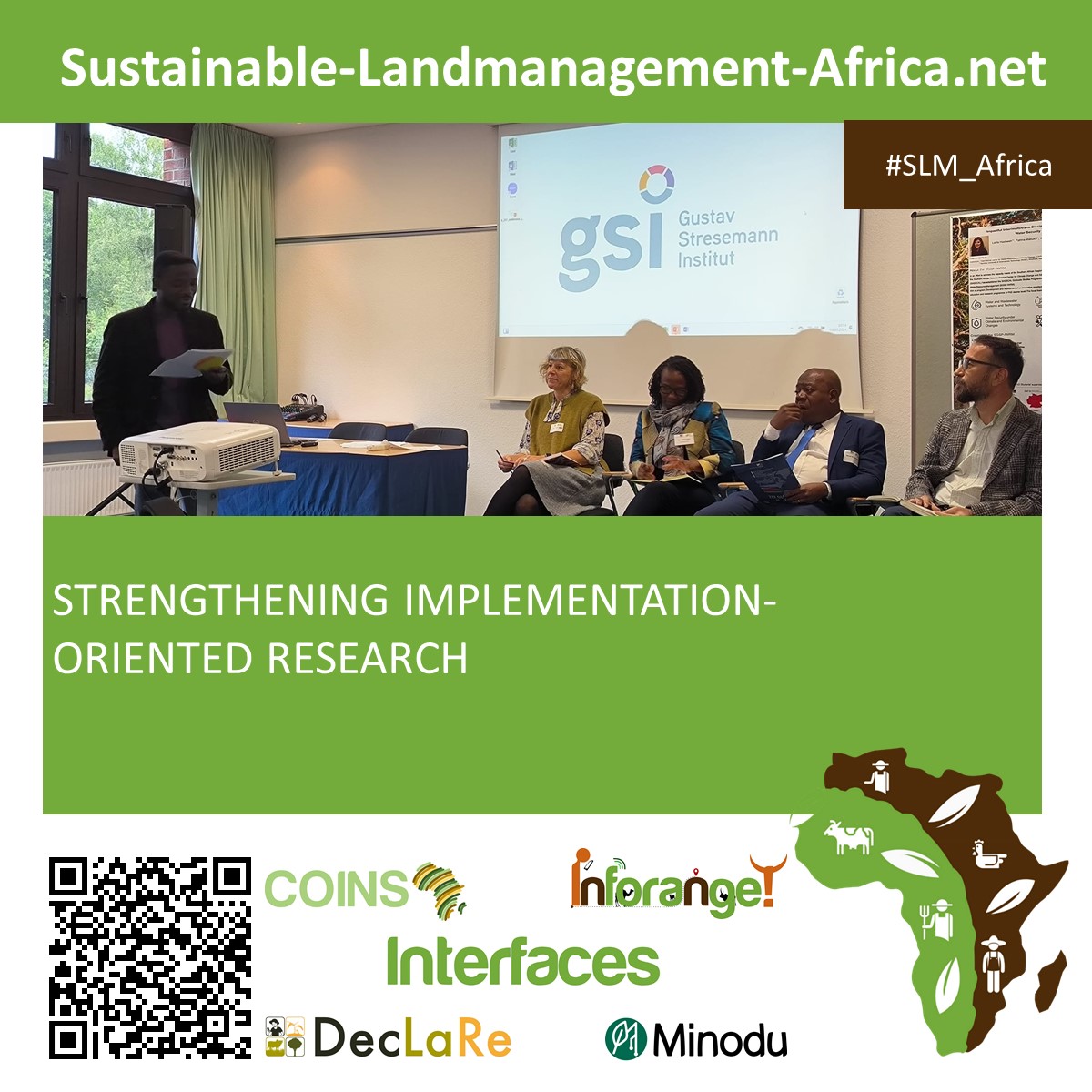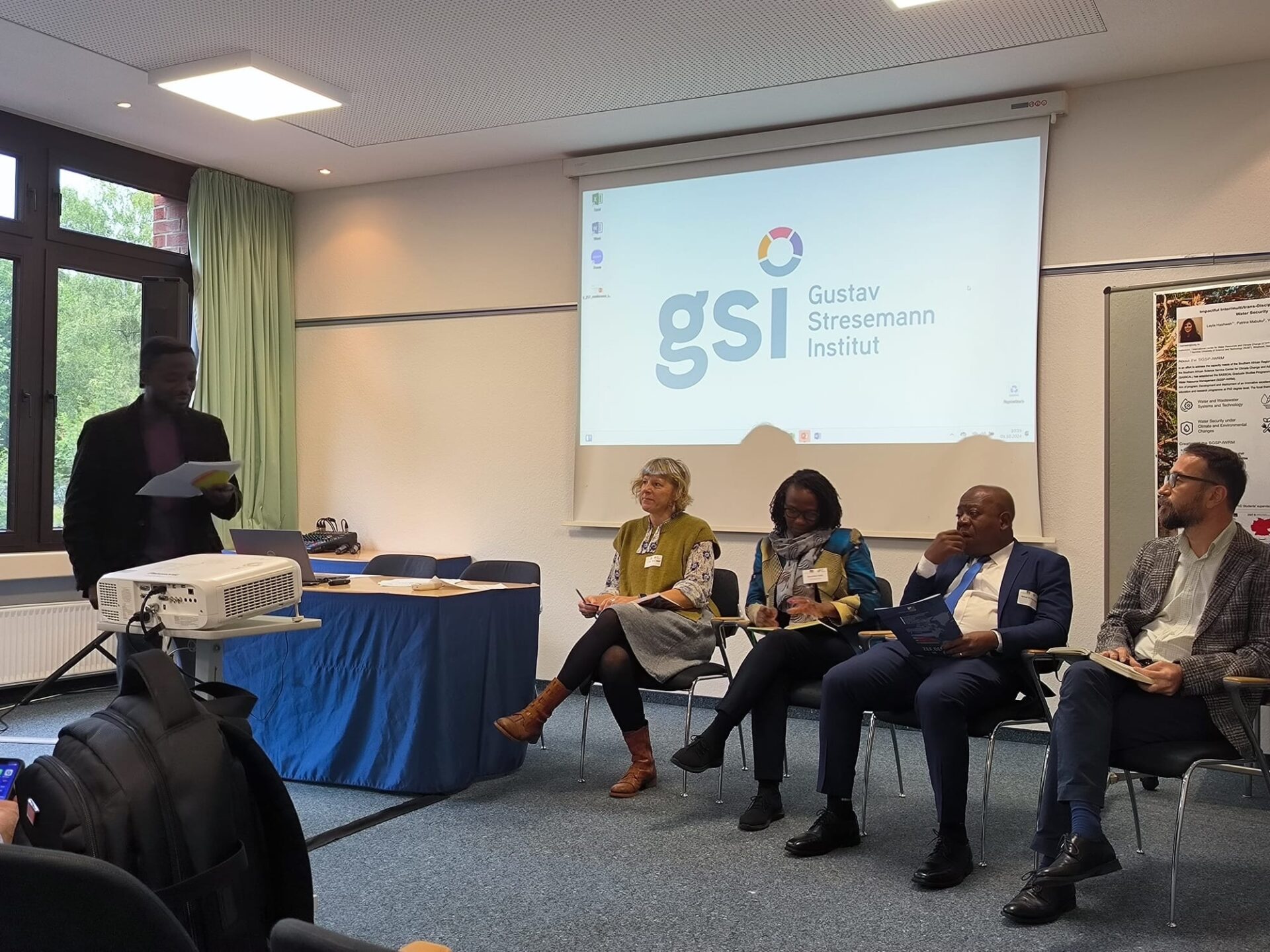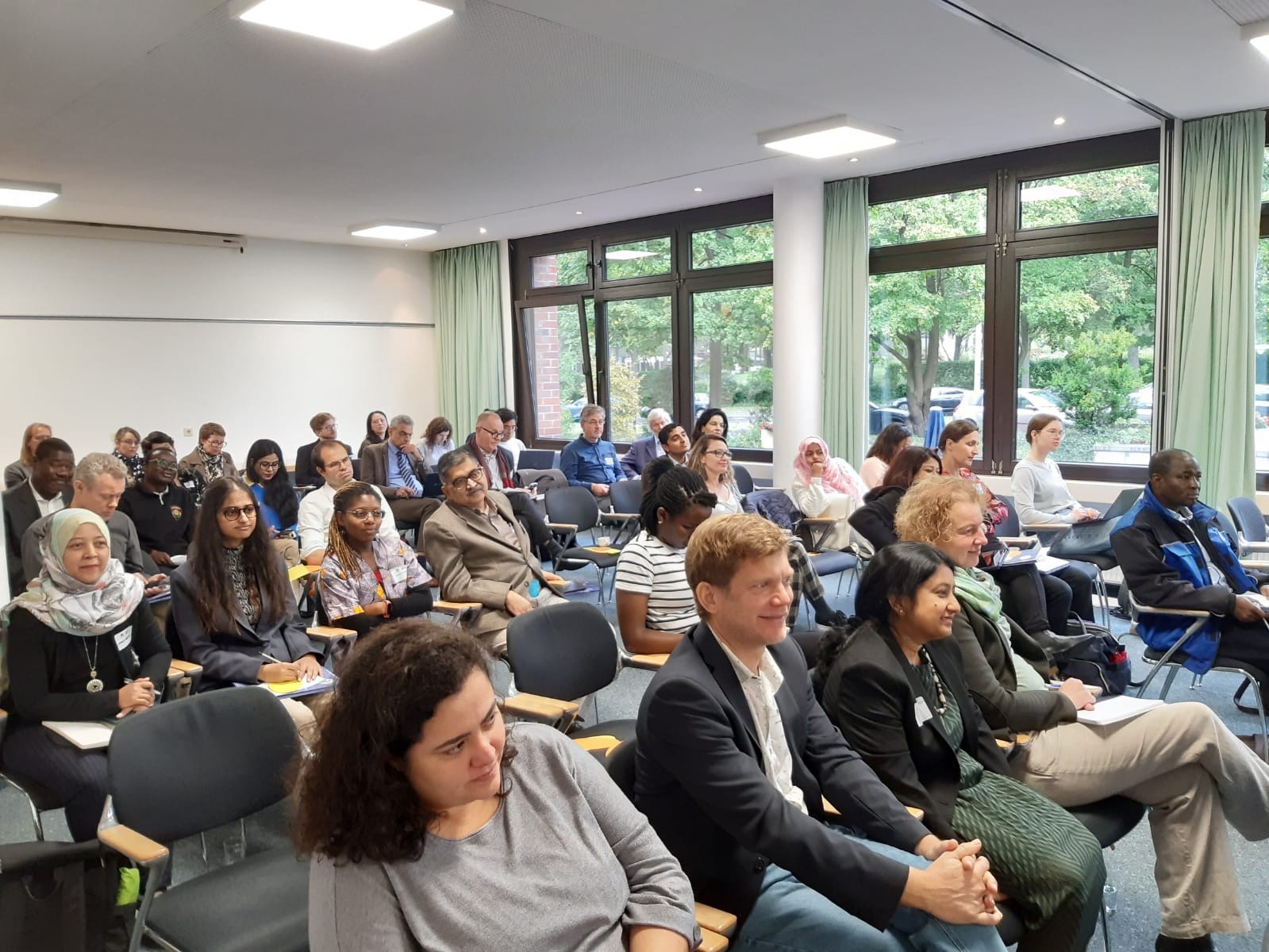Implementation-oriented research is increasingly applied to address complex challenges—challenges with multifaceted and dynamic causes and impacts across diverse stakeholders, societies and boundaries. For emerging scientists, especially early career researchers, learning from past experiences in designing and carrying out implementation-oriented research, is imperative. More so, understanding the challenges associated with implementation-oriented research and how to address them can contribute towards promoting implementation-oriented research.
The INTERFACES project funded by the German Federal Ministry of Education and Research (BMBF) organised a panel discussion at 25th Anniversary International Conference of the Center for Development Research (ZEF) University of Bonn, to shed light on exactly this. Moderated by Dr. Peter Asare-Nuamah, the panel discussion sought to highlight lessons learned and insights gained in designing effective implementation-oriented research. The panellists for the discussion included Prof. Dr. Lisa Schipper (University of Bonn), Prof. Samuel Nii Ardey Codjoe (University of Ghana), Dr. Namukolo Covic (CGIAR – Director, East and Southern Africa), and PD Dr. Alisher Mirzabaev (International Rice Research Institute).
Wide application to address complex problems
Implementation-oriented research involves working with diverse stakeholders to co-create solutions to a societal problem. The panellists highlighted the applicability of implementation-oriented research in addressing complex challenges in diverse contexts and research fields. Some of the areas in which the panellists applied implementation approaches include the development of food-based dietary guidelines, strengthening adaptation to climate change, and integrated water resources management. It emerged that an implementation-oriented research conducted with municipalities in Western India led to the development of heatwave related policies and reduced deaths associated with heatwaves. The lessons from the research resulted in the implementation of similar policies by other municipalities.
The shift from traditional research which focuses on the ‘what and why’ to the ‘how’ under implementation-oriented approach makes implementation research more appealing in addressing complex challenges. This allow for the inclusion of diverse actors or stakeholders in the development of innovations and solutions for specific contexts and problems. For instance, engaging with farmers or policymakers offers the unique opportunity to gain in-depth insights of their contextual challenges – allowing scientists to learn from them, while at the same time enabling local actors in the development of solutions through the technical insights of scientists. Thus, implementation-oriented research is a win-win approach in addressing developmental challenges by scientists and local actors. It is applicable across a wide temporal and spatial scale ranging from local, national, regional to international levels.
Key considerations in designing effective implementation-oriented research
One critical factor influencing the effective development of implementation-oriented research is understanding the needs and preferences of stakeholders. As stated in 1919 by the Physicist Nikola Tesla ‘science is but a perversion of itself unless it has as its ultimate goal the betterment of humanity.’ Gaining a better understanding of what stakeholders need and working towards that as opposed to what scientists assume is essential for stakeholders can lead to the betterment for stakeholders. For researchers, implementation-oriented approach allows stakeholders to be placed at the centre of the solution development process – enabling them to bring their perspectives and realities to the processes. Essentially, policymakers reflect on what is possible to implement when it comes to scientific reports. It is therefore, crucial that scientists understand perfectly what the needs of stakeholders are and at what particular point in time, given the insatiable needs of human society and the associated limited resources. As such, understanding what stakeholders perceive as essential leads to tailoring existing resources towards meeting them.
The diversity of stakeholders is an essential consideration in designing an implementation-oriented research. As societal challenges are multifaceted, stakeholders have different experiences, norms, values and views in relation to a particular challenge. This diversity shapes how solutions are to be developed, particularly from equity and justice perspectives. It is therefore, crucial that implementation-oriented researchers make critical efforts to understand the problem from the diverse perspectives of different stakeholders. The benefits of engaging diverse stakeholders include gaining a holistic understanding of the problem, and designing fit-for-purpose and fit-for-context solutions.
Understanding the context through diverse stakeholders is anchored in the research approach and praxis adopted. Essentially, implementation-oriented research requires inter- and transdisciplinary approaches and system thinking.. Transdisciplinary approaches promote collaboration, particularly between Global North and Global South scientists, which is key to tackling complex challenges, especially in the global South. Such collaboration leads to exchange of ideas, pooling resources, and technical expertise and competences. For knowledge exchange, multiple perspectives from multiple scientists in relation to a particular problem unveils the complexity of societal problems while equally allowing for deeper reflections and discussion on what works best. In effect, reflections and discussions contribute to addressing disagreement through consensus and in some cases, compromise. Similarly, trust building between and among stakeholders and scientists—as well as donors—is highly imperative in designing and implementing effective implementation-oriented research. Trust building takes time, which necessitates the need for implementation-oriented researchers to offer adequate time for effective engagement between scientists and stakeholders. This is crucial not only for building trust, but also for co-creation and co-development of appropriate solutions by policymakers, practitioners and scientists. Similarly, it helps to adapt to changing situations in the stakeholders’ context. Again, prolonged engagement is helpful in assessing impacts, which is often challenging in short-term projects.


